|
|
|
Книги Дорис Лессинг
|
«Роман «Великие мечты» представляет собой эпохальное полотно, рассказывающее о жизни трех поколений англичан. Автор затрагивает множество проблем: положение женщин в современном мире, национально-освободительное движение в Африке, борьба со СПИДом. Великие мечты, будь то победа коммунизма на всей планете или создание вакцины от смертельной болезни, зачастую остаются всего лишь красивыми иллюзиями, но человек, у которого есть Мечта, чувствует, что прожил жизнь не зря.» |
|
«Hunger nach dem großen Leben» ist ein Stück afrikanischer Geschichte. Was sonst als weltpolitische Schlagzeile aus der dritten Welt zu uns kommt, wird hier konkret, sinnfällig und eindringlich am Schicksal eines afrikanischen Jungen erfahrbar: die Übermacht der aufgesetzten kolonialen Zivilisation, errichtet auf den Trümmern zerstörter, jahrtausendealter dörflicher Gemeinschaft und Kultur.» |
|
The third in Doris Lessing s visionary novel cycle Canopus in Argos: Archives . It is a mix of fable, futuristic fantasy and pseudo-documentary accounts of 20th-century history. |
|
A visionary novel from Doris Lessing, Winner of the Nobel Prize for Literature 2007. It is sooner than you might think. And the earth’s climate is much changed – it’s colder than ever before in the north, and unbearably dry and hot in the south. Mara, who is seven, and her four-year-old brother Dann find themselves somewhere very strange, not home… They are taken in by a kindly, grandmotherly woman, but this new life is hard: hunger, dirt, thirst and danger are the children’s constant companions. Drought and fire carry off their adoptive home and force them to set off northward into the unknown, to experience a series of adventures that bring them through to an altogether altered world, where they can start to learn and build anew. Doris Lessing has written a compelling, troubling and entertaining novel that, through the remarkable odyssey of a brother and sister living in the imagined future, manages to tell us a great deal about the present we only dimly perceive and scarcely know how to value. |
|
With the four short novels in this collection, Doris Lessing once again proves that she is unequalled in her ability to capture the truth of the human condition. The title story, ‘The Grandmothers’, is an astonishing tour de force, a shockingly intimate portrait of an unconventional extended family and the lengths to which they will go to find happiness and love. Written with a keen cinematic eye, the story is a ruthless dissection of the veneer of middle-class morality and convention which manages to be at once universal and desperately, heartbreakingly personal. A second story, ‘Victoria and the Staveneys’, takes us through 20 years of the life of a young underprivilged black girl in London. A chance meeting introduces her to the world of the Staveneys – a liberal white middle-class family – and, seduced, she falls pregnant by one of the sons. As her young daughter grows up, Victoria feels her parental control diminishing as the attractions of the Staveney’s world exert themselves. An honest and often uncomfortable look at race relations in London over the past few decades, Lessing reaffirms her brilliance at demonstrating the effect of society on the individual. With these and two other equally brilliant novellas, Lessing has proven |
|
Assembled here for the first time in book form are the very best of several decades' worth of occasional writings from perhaps the best-loved and most-admired of Britain's great female writers. A selection of the very best of Doris Lessing's essays, never before collected together and published in book form. Articles on writers as diverse as Jane Austen, Muriel Spark, Virginia Woolf, D.H. Lawrence, Mikael Bulgakov sit alongside autobiographical looks at the beliefs that have shaped Lessing's thinking. There are adoring and adorable pieces on the beloved cats that she has allowed to share her life, and insightful looks at the Africa in which she grew up, and London and England, the place where she made her home. The range of subjects, cultures and periods within these essays is huge but the collection is utterly consistent in one key regard: Doris Lessing's clear-eyed vision and clearly-expressed prose are present throughout. There is a huge amount of wisdom and entertainment in these pages, and fans of Doris' infectiously forthright, zestful and impish spirit will love to own and read this book. |
|
Doris Lessing, one of England's finest living novelists, invites us to imagine a mythical society free from sexual intrigue, free from jealousy, free from petty rivalries: a society free from men. An old Roman senator, contemplative at his late stage of life, embarks on what will likely be his last endeavour: the retelling of the story of human creation. He recounts the history of the Clefts, an ancient community of women living in an Edenic, coastal wilderness, confined within the valley of an overshadowing mountain. The Clefts have no need, or knowledge, of men – childbirth is controlled, like the tides that lap around their feet, through the cycles of the moon, and their children are always female. But with the unheralded birth of a strange, new child – a boy – the harmony of their community is suddenly thrown into jeopardy. At first, in their ignorance, the Clefts are awestruck by this seemingly malformed child, but as more and more of these threateningly unfamiliar males appear, now unfavourably nicknamed Squirts, they are rejected, and are exposed on the nearby mountainside; sacrificed to the patrolling eagles overhead, the sentinels of their female haven. Unbeknownst to the Clefts, however, these baby males survive, aided by the very eagles sent to kill them, and thrive on their own on the other side of the mountain. It is not until an unusually curious young Cleft named Maire goes beyond the geographical, and emotional, divide of the mountain that this disquieting fact is uncovered – a discovery that forces the Clefts to accept and realign themselves to the prospect of a now shared world, and the possible vengeance of the wronged males. In this fascinating and beguiling novel, Lessing confronts head-on the themes that inspired much of her early writing: how men and women, two similar and yet thoroughly distinct creatures, manage to live side by side in the world, and how the specifics of gender affect every aspect of our existence. |
|
A hugely significant political novel for the late twentieth-century from one of the outstanding writers of the modern era and Winner of the Nobel Prize for Fiction 2007. In a London squat a band of bourgeois revolutionaries are united by a loathing of the waste and cruelty they see around them. These maladjusted malcontents try desperately to become involved in terrorist activities far beyond their level of competence. Only Alice seems capable of organising anything. Motherly, practical and determined, she is also easily exploited by the group and ideal fodder for a more dangerous and potent cause. Eventually their naïve radical fantasies turn into a chaos of real destruction, but the aftermath is not as exciting as they had hoped. Nonetheless, while they may not have changed the world, their lives will never be the same again… |
|
A classic tale from Doris Lessing, Winner of the Nobel Prize for Literature 2007, of a family torn apart by the arrival of Ben, their feral fifth child. 'Listening to the laughter, the sounds of children playing, Harriet and David would reach for each other's hand, and smile, and breathe happiness'. Four children, a beautiful old house, the love of relatives and friends, Harriet and David Lovatt's life is a glorious hymn to domestic bliss and old-fashioned family values. But when their fifth child is born, a sickly and implacable shadow is cast over this tender idyll. Large and ugly, violent and uncontrollable, the infant Ben, 'full of cold dislike', tears at Harriet's breast. Struggling to care for her new-born child, faced with a darkness and a strange defiance she has never known before, Harriet is deeply afraid of what, exactly, she has brought into the world! |
|
«The first book in the «Children of Violence» series, a quintet of novels tracing the life of Martha Quest from her childhood in colonial Africa through to old age in a post-nuclear Britain. The other novels are «A Proper Marriage», «A Ripple from the Storm», «Landlocked» and «The Four-Gated City».» |
|
A fierce, compelling account of the nature and origins of love from Doris Lessing, one of the most acclaimed authors of the twentieth-century and Winner of the Nobel Pize for Literature 2007. Sarah Durham, sixty-year-old producer and founder of a leading fringe theatre company, commissions a play based on the journals of Julie Vairon, a beautiful, wayward nineteenth-century mulatto woman. It captivates all who come into contact with it, and dramatically changes the lives of all those who take part in it. For Sarah the changes are profound — she falls in love with two younger men causing her to relive her own stages of growing up, from immature, infantile with the beautifual and androgynous Bill, to the mature love, Henry. |
|